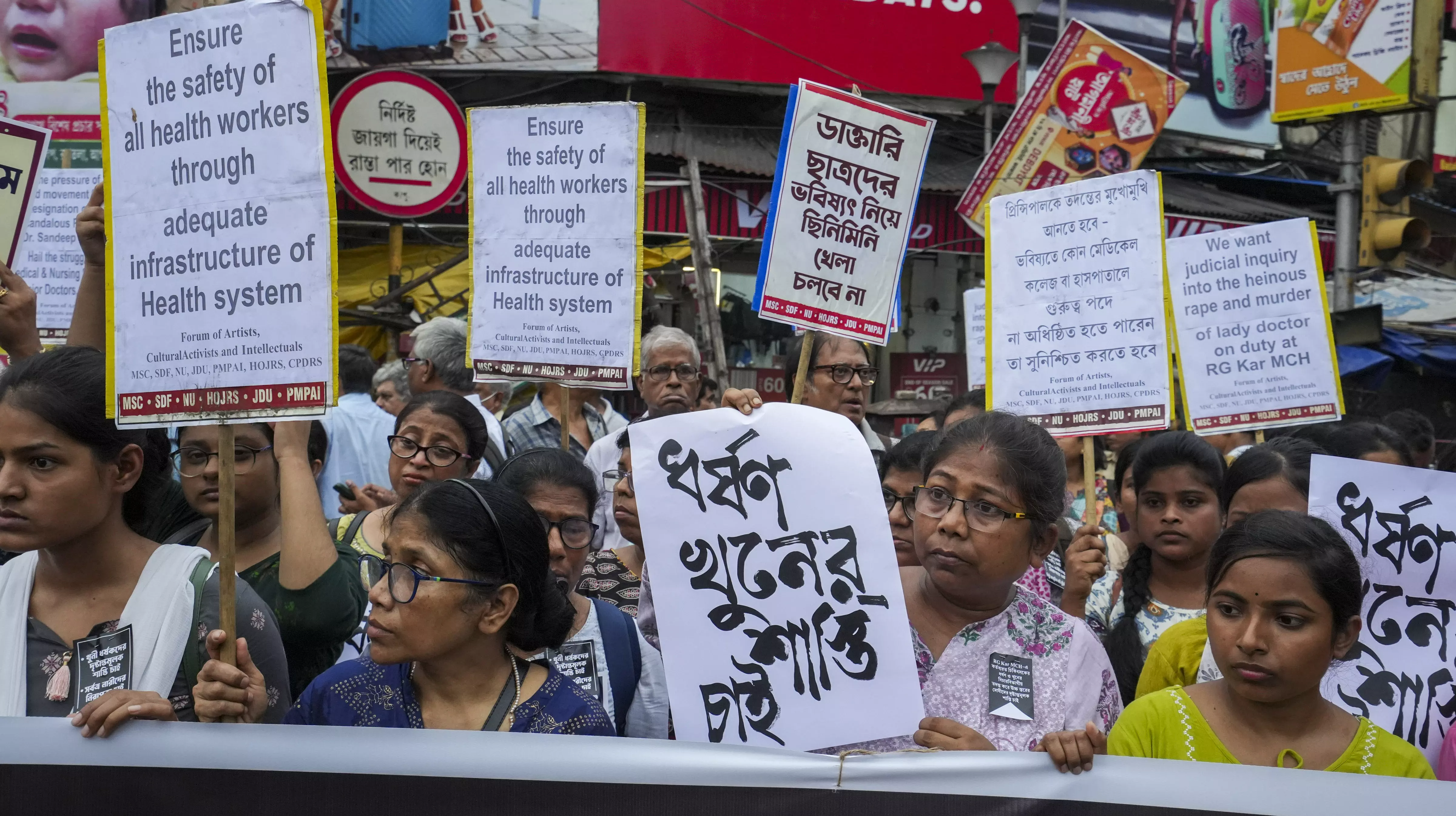AA Edit | Death of a doctor: Time to fix hospitals’ security

The ghastly rape and murder of a post-graduate resident doctor in a seminar hall at the state-run R.G. Kar Medical College and Hospital, Kolkata, last Friday has triggered a nationwide protest by the medical community. It has hit healthcare services across the nation including the national capital. Most elective surgeries and outpatient services were on hold for the second day on Tuesday, as three lakh doctors joined the protests called by the Federation of Resident Doctors’ Association (Forda).
The Kolkata Police has arrested a civic volunteer attached to the police for the crime but the government is yet to come to a conclusion that it was the act of a single person. Meanwhile, five days having passed since the rape-murder, the high court on Tuesday handed over the investigation to the CBI on a plea by the young woman’s parents amid mounting outrage and doubt.
The demands of the doctors are genuine and just. They feel the incident was “perhaps the greatest travesty to have occurred in the history of the resident doctor community”. First and foremost on their list has been an effective police investigation that will put all responsible for the crime before the law and their fast-track trial.
The doctors are also demanding the rolling out of security protocols for all healthcare workers. The Indian Medical Association has demanded a Central law to curb attacks and violence against doctors as a “deterrence” and declaration of hospitals as safe zones.
But the call by doctors for the removal of all authorities concerned who “could not protect the dignity and life of a female on-duty doctor” was only partially met when the principal of the medical college quit on his own volition. Then, within 12 hours, he was appointed principal of the Calcutta National Medical College and Hospital, in another plum posting by the state government. He has now been asked by the court to be sent on long leave.
West Bengal chief minister Mamata Banerjee’s ultimatum to the police after visiting the parents that her government would hand over the investigation to the Central Bureau of Investigation unless they cracked the case by Saturday now appears to have been merely an eyewash. It is in fact being seen as an attempt to hide the institutional lapses the incident has brought to fore — poor security the hospital staff lived with, little or no surveillance of the premises and a lackadaisical police investigation. Reports say the arrested person was acting as a cop on the campus.
And yet the CBI, too, does not have a sterling track record.
Hence, the Union and the West Bengal governments are duty-bound to take real steps that convince the striking doctors to return to work. The strike has put thousands and thousands of suffering people in greater misery.
There is no gainsaying that no doctor, or for that matter worker, should be expected to put in their best under mortal fear of assault and loss of life. As for healthcare workers, most states have put in place special laws that provide for harsh punishment for attacks on them and on hospitals but the police often fight shy of invoking them, citing the “emotional context” of the crime. It is important that all state governments strict enforce such laws and other rules to ensure that doctors, patients and anyone else on the premises are protected and a recurrence of such an incident is prevented in the future.
The unfortunate death of a young doctor must act as the trigger.
